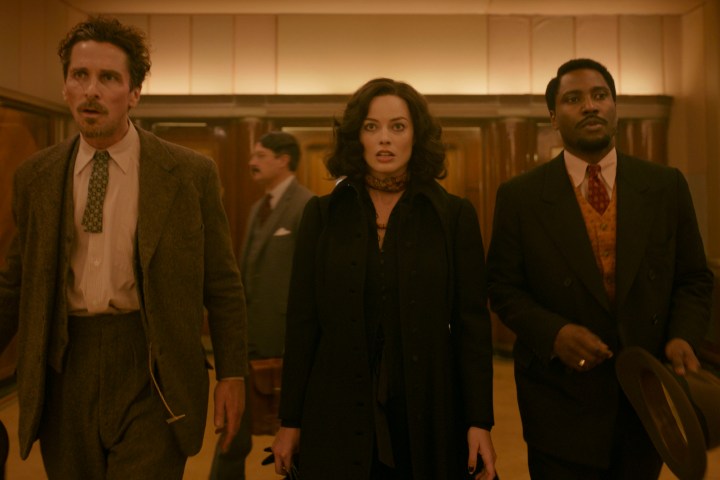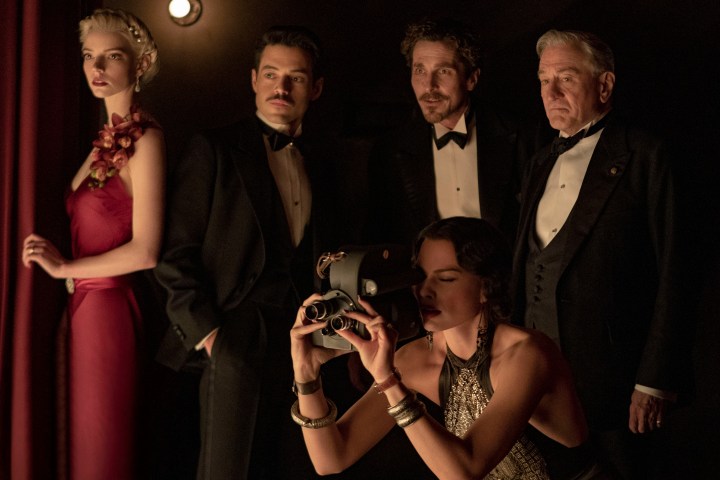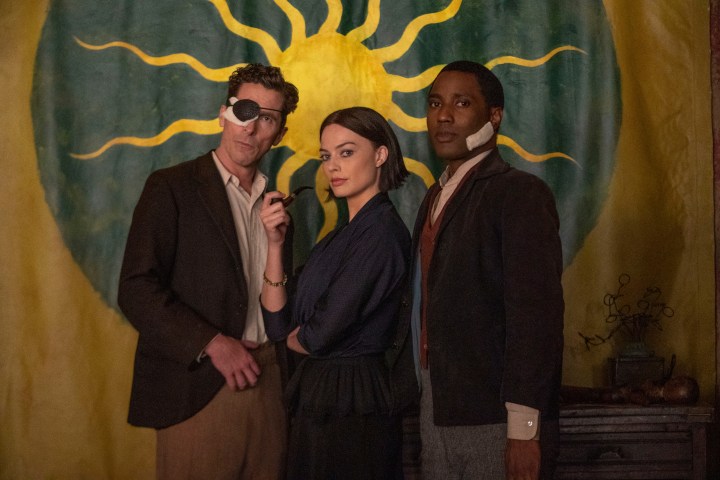Amsterdam could have been forgiven for being a lot of things, but dull is not one of them. The new film from writer-director David O. Russell boasts one of the most impressive ensemble casts of the year and is photographed by Emmanuel Lubezki, one of Hollywood’s premier cinematographers. Beyond that, its kooky premise and even wackier cast of characters open the door for Amsterdam to be the kind of screwball murder mystery that O. Russell, at the very least, seems uniquely well-equipped to make.
Instead, Amsterdam is a disaster of the highest order. It’s a film made up of so many disparate, incongruent parts that it becomes clear very early on in its 134-minute runtime that no one involved — O. Russell most of all — really knew what it is they were making. It is a misfire of epic proportions, a comedic conspiracy thriller that is written like a haphazard screwball comedy but paced like a meandering detective drama. Every element seems to be at odds with another, resulting in a film that is rarely funny but consistently irritating.

As its exposition-laden opening narration establishes, Amsterdam follows Dr. Burt Berendsen (Christian Bale), a doctor and war veteran who has grown used to living every day with a glass eye and back brace. Forever changed by his experience fighting in World War I, Burt has taken it upon himself to try to single-handedly care for all of the other wounded vets who have been left behind by the elites of early 1930s New York City. Unfortunately for him, it’s this philanthropic instinct that leads Burt into agreeing to conduct a covert autopsy on the body of his former commanding officer.
When Burt discovers that the man in question was, indeed, poisoned, he is forced to team back up with two of his WWI companions, a lawyer named Harold Woodsman (John David Washington) and Valerie Voze (Margot Robbie), the former combat nurse who saved Burt and Harold’s lives when they were injured in the war. Before long, Burt, Harold, and Valerie all find themselves caught up in a conspiracy involving several powerful businessmen, a celebrated American general (played by Robert De Niro), and the authoritarian political wave that’s simultaneously sweeping through Europe.
If that all sounds a bit messy and convoluted, that’s because it is. However, while Amsterdam’s premise is loosely based on an obscure American political conspiracy known as the Business Plot, the film fails to coherently adapt its real-life story for the big screen. O. Russell’s attempts to stress the contemporary relevance of the Business Plot itself never come across as anything more than ham-fisted and hackneyed, either, and that’s especially true by the time that Amsterdam tosses out a lazy and obvious visual joke in its third act about the secretly fascistic design of one character’s hedges.

Amsterdam also saddles most of its cast members with some of the most inauthentic and cloying dialogue you’ll likely hear this year. Zoe Saldaña, for instance, is utterly wasted in a thankless role that would rather her espouse empty platitudes about the nature of love than contribute anything of real substance to Amsterdam’s story. O. Russell’s script, meanwhile, buries Robbie, Washington, and Bale’s natural charisma beneath superfluous layers of eccentricities that add little to their characters, and the love story that binds Harold, Burt, and Valerie together is so thinly sketched and saccharine that it ultimately rings false.
There are a few performers who do manage to make the most out of O. Russell’s screwball swings — namely, Michael Shannon, Mike Myers, Alessandro Nivola, and Andrea Riseborough. Anya Taylor-Joy also makes an admirable attempt at bringing her obnoxiously narcissistic character to life in as satirical a way as possible, but the heightened aspects of her performance are drowned out by both O. Russell’s frequently odd editing choices and the sleepy performance that Rami Malek gives as her on-screen partner, Tom.

For his part, Lubezki’s cinematography imbues Amsterdam with a kind of warmth and sensitivity that its dramatically inert script lacks. Lubezki’s meditative, Malick-esque visual style does often seem to be at odds with O. Russell’s frenetic sense of humor, though, which only makes the disconnect between the way Amsterdam is written and the way it was brought to life that much more apparent. While J.R. Hawbaker and Albert Wolsky’s costumes only further reinforce Amsterdam’s needlessly quirky style as well, the duo do manage to clothe the film’s stars in a number of memorable outfits. (This writer was particularly fond of the top hat-centric look Robbie rocks in Amsterdam‘s second act.)
The film’s visual achievements are not enough to rescue Amsterdam. The film is a creative and directorial miss that feels doomed from its tedious opening moments all the way to its emotionally hollow final frames. What could have been a messy but, at the very least, delightfully exuberant 90-minute conspiracy comedy has been rendered as a 135-minute wannabe prestige production. Every line of dialogue sounds like it was intended to be thrown out like a fastball but was instead read at half-speed, which leaves many of Amsterdam’s scenes with the kind of dead pauses that only grind its momentum to an even greater halt.
Between this, Joy, and American Hustle, it seems safe to say that whatever goodwill O. Russell had accrued with The Fighter and Silver Linings Playbook has since dried up. Much like the poisoned veteran at the center of its story, Amsterdam is simply dead on arrival.
Amsterdam is now playing in theaters.



